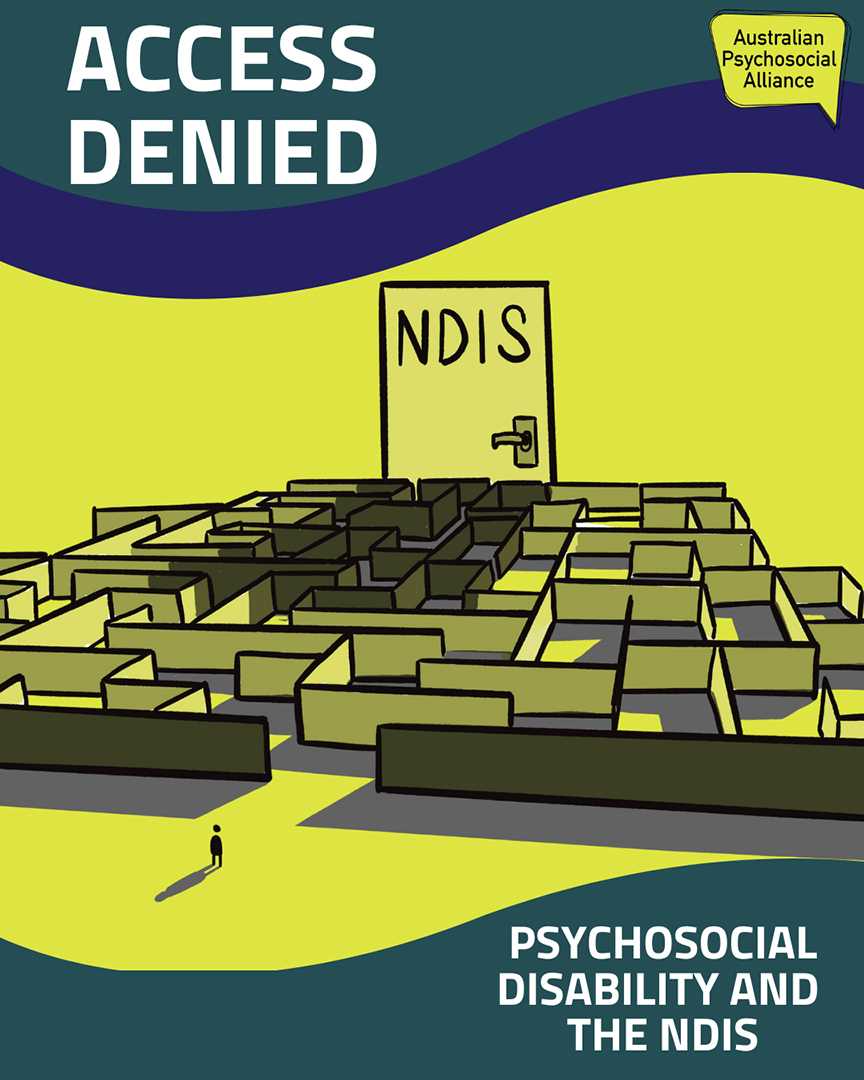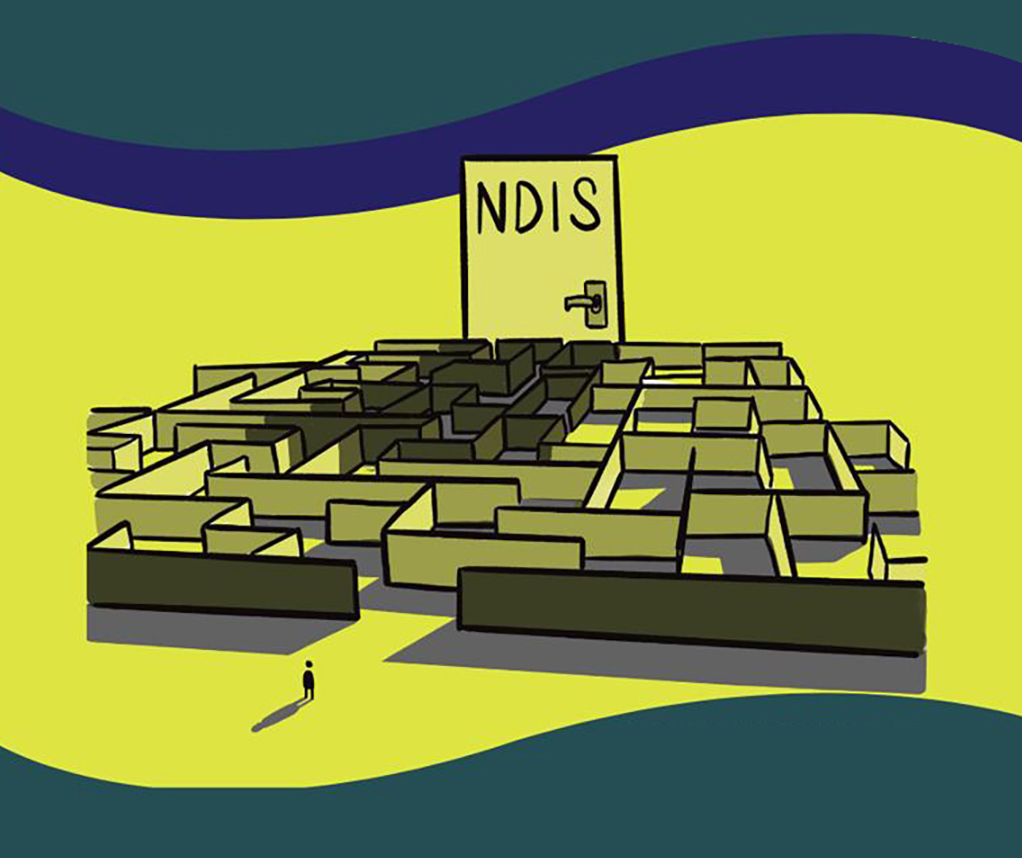Wellways has joined six other leading mental health organisations as part of the Australian Psychosocial Alliance (APS) to release a new report called Access Denied – Psychosocial Disability and the NDIS.
Psychosocial disability, in simple terms, is when mental health challenges severely affect a person’s ability to engage in everyday life, making it difficult to connect with others, maintain friendships, work, or take care of oneself. Mental health challenges can, of course, impact on all these things from time to time, but how deeply it impacts and disrupts a person’s life determines when a mental health challenge crosses over into psychosocial disability.
The unexplained drop in access
The APA’s Access Denied report, released today, shows that there has been a 62% drop in NDIS access for people with psychosocial disability since 2020; and while NDIS access rates have reduced across the scheme, this is the largest drop across all disability groups despite there being no formal changes to eligibility criteria or legislation to explain why.
The report also highlights that in 2017 it was estimated that by 2025, people living with a primary psychosocial disability would make up 13.9% of all NDIS participants. At present, this number is just 8.8%.
This means that around 5,500 people with psychosocial disability who were estimated to be in the NDIS by 2025 are not receiving the support they need.
People with psychosocial disabilities who need permanent long-term support have a right to access the NDIS. However, current eligibility and assessment processes create significant barriers for people living with psychosocial disability, and with few supports available outside the NDIS, the lack of access to adequate long-term support has serious negative impacts not only on the individuals themselves but also on their families, carers, supporters and kin.
While managing the cost of the Scheme is a focus of government, denying NDIS access to those who need support does not save money, it simply transfers the costs on to people, their families and carers, and other parts of the mental health and disability system who are already under pressure.
Many people with psychosocial disabilities already face extreme high rates of stigma and discrimination. Our government systems should not be continuing to replicate this discrimination.
That’s why we’re calling on the Commonwealth Government to take action. We want to see:
- Clearer eligibility criteria and assessment processes for psychosocial disability.
- Expert oversight of psychosocial disability applications’
- A new psychosocial disability working group, led by lived experience, set up to drive reform and set new assessment timelines and targets
Why we are advocating for immediate action
People living with psychosocial disability deserve the same access to long-term disability supports as others.
Without dedicated psychosocial disability access pathways, psychosocial expertise in the assessments that identify individual support needs, and greater psychosocial representation in NDIS governance, people with psychosocial disabilities risk being further excluded from the supports and funding needed to live independently.
Mental health supports programs outside of the NDIS are often time-limited and cannot meet the long-term support needs of people who need the NDIS. This means that many people with psychosocial disability and their families, supporters and kin are falling through the cracks with disastrous consequences.
Inclusive communities do not leave people behind, which is why Wellways will continue to advocate alongside its community mental health partners in the APA for psychosocial inclusion in the NDIS.

Read the full report: Access Denied Psychosocial Disability and the NDIS Final report
